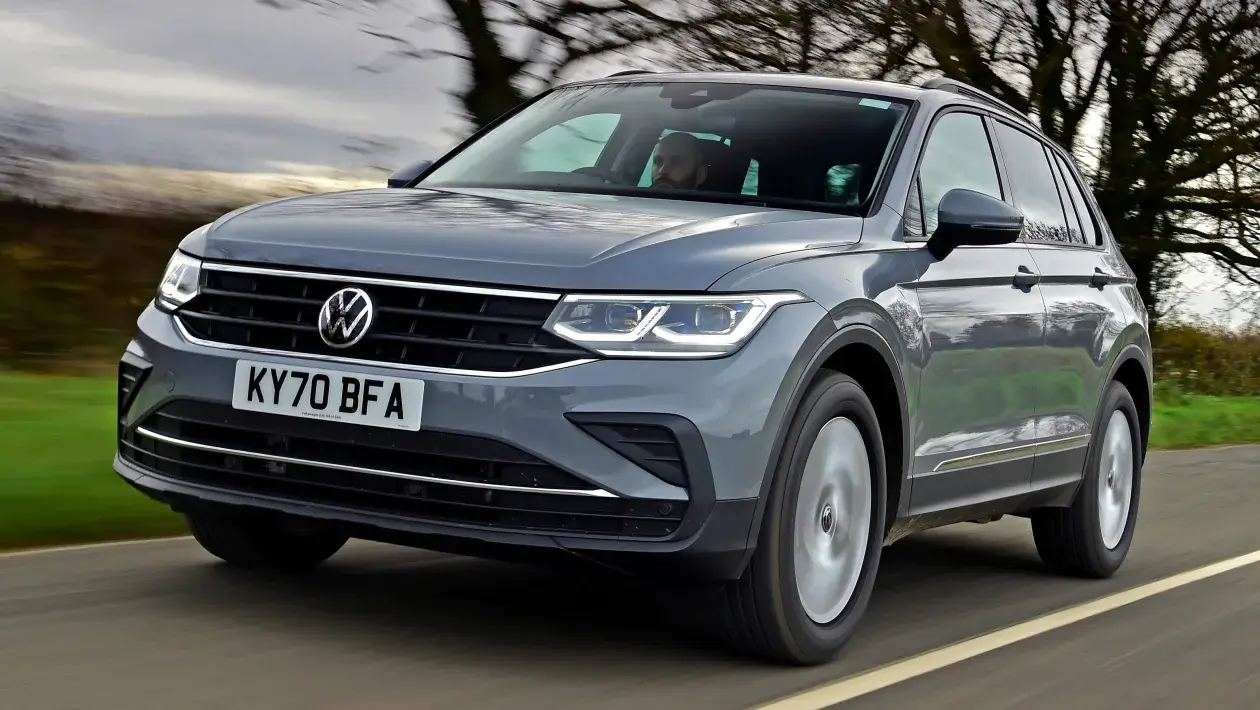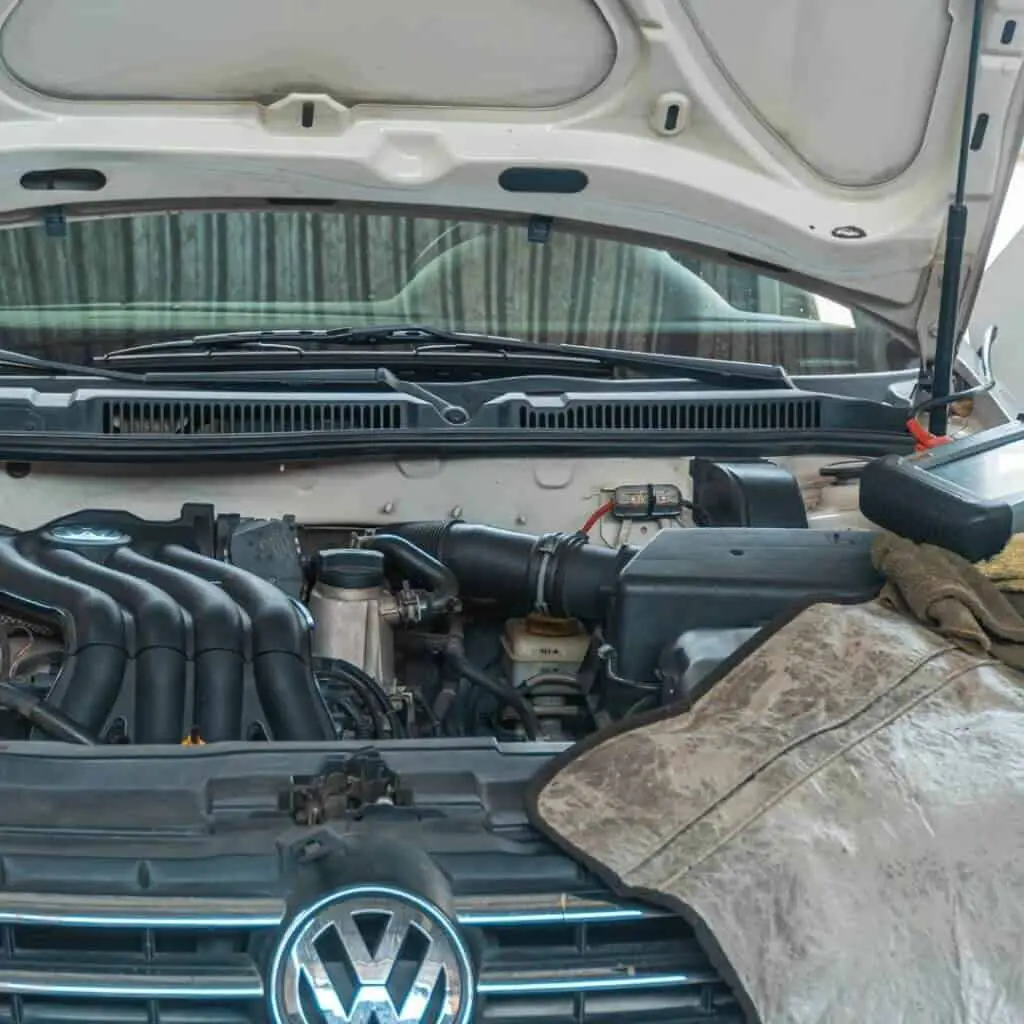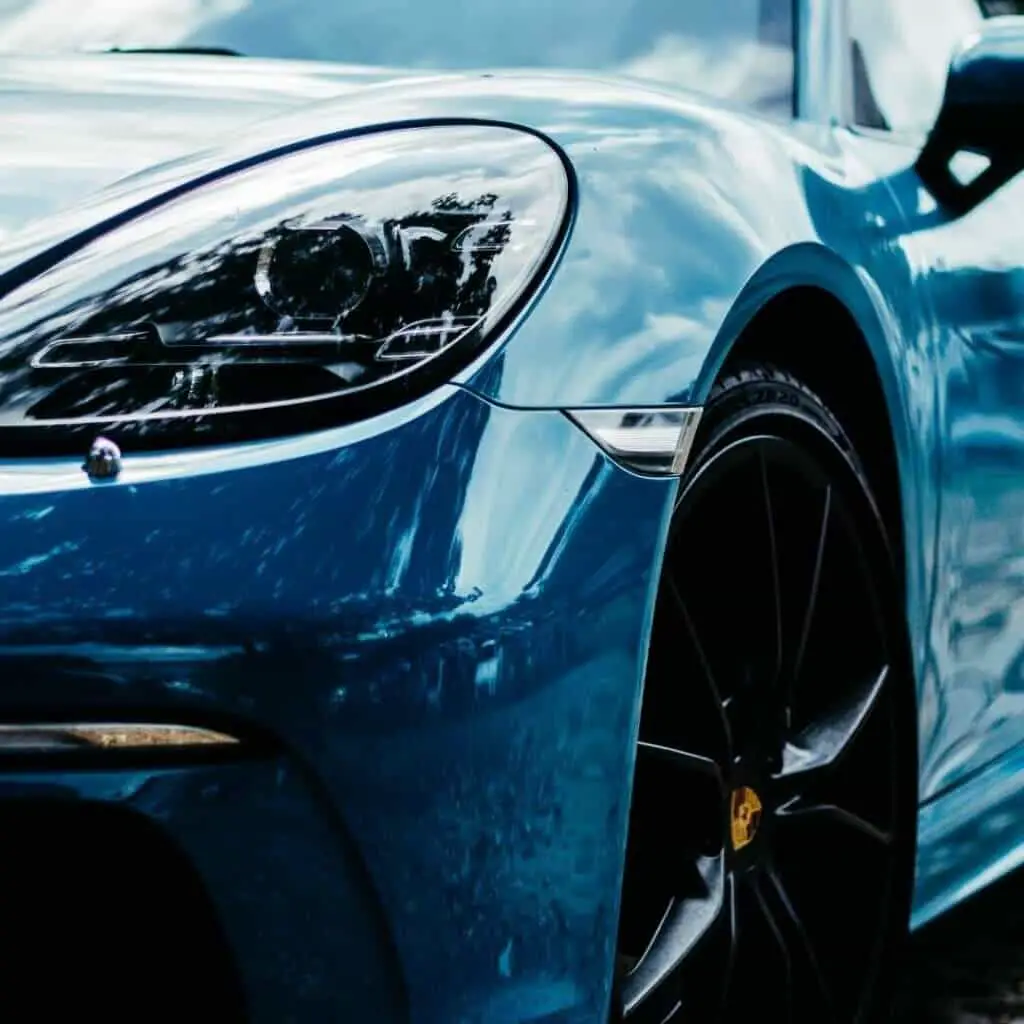Are you familiar with the VW Tiguan problems?
The Volkswagen Tiguan is a mid-sized SUV manufactured by Volkswagen since 2007. It is a 5-seater SUV featuring a 2.0-litre TSI turbocharged four-cylinder. It comes equipped with a 7-speed automatic transmission and all-wheel drive (AWD) configuration.
This SUV car has several safety features like an anti-lock braking system, electronic brake assist, and electronic stability program. It is also equipped with the hill assist feature, six airbags, and a tire pressure monitoring system.
Additional standard features include adjustable steering, Cruise Control, Keyless Entry, Powered Seats, Climate Control, and a Reverse Camera. However, despite being an excellent SUV, the car suffers several issues, as discussed in this article.
Common VW Tiguan Problems

VW Tiguan has encountered some common issues, including engine stalling, water pump failures, timing chain problems, carbon buildup, and automatic emergency braking system issues. Excessive oil consumption has also been reported in certain models. Additionally, newer Tiguan models have encountered infotainment system glitches and steering-related problems.
- Engine Issues
VW Tiguan owners have frequently complained about engine stalling and throttle system problems, particularly in the 2016 to 2019 models. The engine usually stalls, and the car goes into limp mode. They are forced to stop and restart the car, which is extremely dangerous because the driver cannot control his speed.
This problem can be attributed to a malfunctioning fuel injector wiring harness, which should be replaced under warranty. An engine-related recall was issued, especially for the 2018 Tiguan.
The recall was due to the engine support bolts. The reason is that they were not adequately tightened, leading to an unexpected engine breakdown and loss of power [1].
Another common issue for the Tiguan engine is hesitation when accelerating. Owners describe it as ‘severe’ and ‘erratic’, making it extremely dangerous to drive on the highway.
The wrong fuel/air mixture can often cause engine hesitation. Such a mixture might result from a failed mass airflow sensor, throttle position sensor, faulty fuel pump, or/and dirty fuel injectors.
- Premature Water Pump Failure
A water pump circulates coolant between the radiator and the engine. The coolant is very important for the engine cooling system. Without it, the engine will slowly overheat and go into limp mode. Premature water pump failure is common in Volkswagens and the Tiguan is no exception.
Water pumps fail mainly due to gasket leaks, normal wear and tear, or lack of coolant. In Volkswagen, you will likely go through at least one water pump throughout its lifecycle.
Symptoms of water pump failure include antifreeze indicator illuminating, engine overheating, limp mode activation, and leaking engine coolant. Whenever the water pump fails, there is only one option, replacing the complete unit kit of the water pump. [2]
- Timing Chain Failure
One of the most frustrating and expensive issues to fix in a Volkswagen Tiguan is related to its timing system. The timing chain tensioner, which is made of plastic, tends to fail in many VW Tiguans. Your timing system may have failed if you hear rattling or misfiring while idling.
Timing chain failure commonly affects Tiguan models from 2009-2013, and the issue is widespread across numerous other VW models [3].
The timing chain works within the engine to synchronize the rotating camshaft and the crankshaft. Its metal links enable it to grab onto the different gears and wheels.
If you see a Check Engine light accompanied by contaminated engine oil, it may signal a timing chain issue. The biggest problem with timing chain failure is that it can damage the engine beyond repair when it occurs. A timing chain can fail due to tensioner malfunction or breaking completely.
When a timing chain or tensioners fail, valves collide with the pistons, which causes engine damage. Symptoms of this malfunction include the engine not cranking, rattling noise, stretched timing chain, and sluggish engine performance. When a timing chain stretches or breaks, it should be replaced immediately.
- Carbon Buildup
Carbon buildup is the most regularly reported issue about the Tiguan. When it occurs it normally results in lower power and fuel economy. This issue has been observed in models from 2009 to 2016. The TSI direct injection engine in the Tiguan is, for the most part, prone to carbon buildup.
The fuel passing through the intake system cleans the injectors in ordinary engines. However, because the Tiguan uses direct injection, fuel does not flow via frequent carbon buildup regions [4].
Carbon buildup can be detected by power loss, rough idling, black smoke coming from the exhaust, hard starts, engine cylinder misfires, and decreased acceleration. The intake manifold, intake ports on the cylinder head, and intake valves should be cleaned thoroughly to eliminate carbon buildup.
- Automatic Emergency Braking Problems
A malfunctioning Automatic Emergency Braking (AEB) system is also a worrying problem reported by Tiguan owners. This problem has been experienced in various Tiguan models since 2018. The problem can manifest in two ways.
One, the AEB system is activated without driver intervention. This disturbing condition leads to sudden and unnecessary braking, which can cause an accident [5].
The root cause of this problem is an oversensitive sensor in the AEB system. When it becomes overly reactive, it can interpret benign situations as possible collisions, leading to erroneous activation of the emergency braking system.
The other issue is that the emergency brake does not activate when needed. The reasons why the AEB system does not work when required may vary. Some leading causes could be sensor malfunctions, software problems, or other technical problems in the system.
To resolve this issue, owners should consult with Volkswagen. Periodic maintenance and software updates will resolve these problems and ensure that the AEB system operates as intended during emergencies.
- Excess Oil Burning
Excessive oil consumption is a typical issue with Tiguan models, particularly 2018 models. Due to this problem, the engine constantly requires oil addition. This leaves owners perplexed and concerned as the engine consumes oil at an alarming pace.
Although VW dealers claim that their cars use a quart of oil per 1,000 miles, in some VW Tiguan, more is needed. This issue has been linked to faulty cylinder seals. Cylinder seals help to prevent oil leakage into the combustion chambers. If it leaks, it ends up being burnt during combustion [6].
The effects of excessive oil consumption are beyond simple annoyance since owners are forced to purchase and add oil more frequently than usual. As a result, it leads to higher operational expenses and also causes environmental pollution. Adding too much oil to the combustion process increases pollutants that harm the environment.
- Infotainment and Electrical System Issues
Infotainment screen issues are particularly problematic with newer Volkswagen Tiguan models. The infotainment screen frequently freezes or goes blank completely. These problems can often be resolved by resetting or updating the system to the latest version [7].
Common electrical problems with the VW Tiguan are related to the lights, infotainment screen, and rearview camera. Lights issues include the low and high beams failing, issues with the sunroof ambient lighting bar, and problems with the taillights.
- Steering Issues
Two issues have plagued the Tiguan steering system since its release. The first is associated with the faulty clock spring. When the spring breaks, it causes a malfunction in the steering wheel as well as other wheel-related systems such as the airbag.
The other steering issue is where the power steering disengages. When this occurs it causes the steering wheel to become extremely heavy. If you experience either of these issues, you should take your Tiguan to a Volkswagen specialist for repairs. [8]
Related: Mercedes Vito Van Problems
Conclusion
The Volkswagen Tiguan is a great SUV, but it is not without issues. It encounters issues with the engine, water pump, and timing chain among other problems. These problems underscore the importance of careful consideration and potentially seeking professional assistance when considering a Tiguan.
This is because all these problems can impact both safety and cost of ownership. If you experience any issues, taking your vehicle to a Volkswagen specialist for repairs is crucial. However, with appropriate care and maintenance, you’ll be able to continue enjoying your Tiguan for many years.
Read Next: VW 4motion Problems




